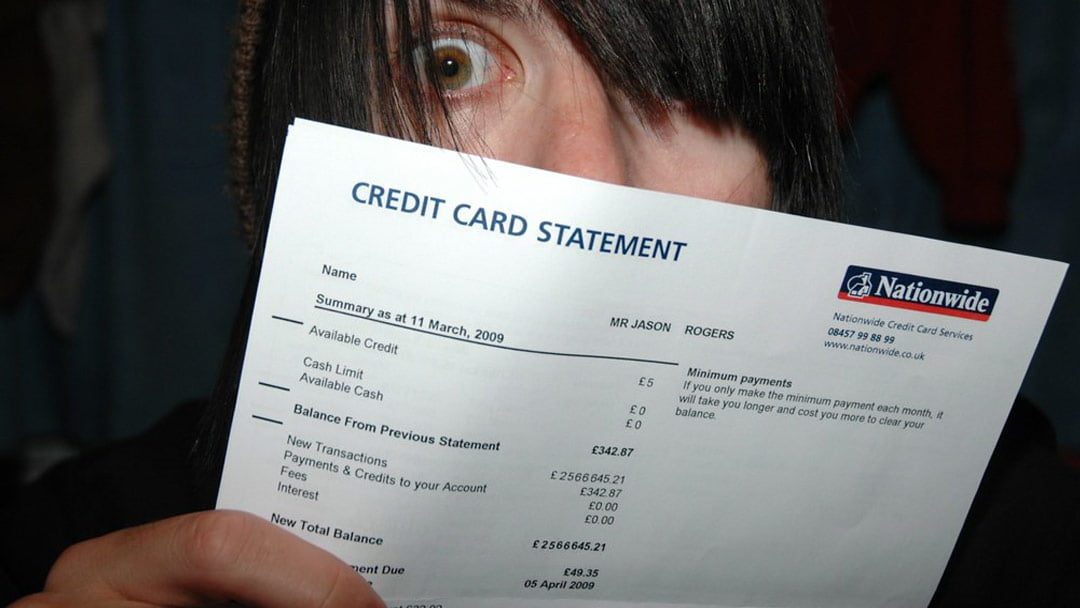
![]() photo credit: xJasonRogersx
photo credit: xJasonRogersx
In this post you’ll learn how to manage debt. In The Secrets of Becoming Rich we talked about the six steps to creating a solid foundation to build your wealth. In case you’ve not read the six steps, you can catch up here.
Specifically, we’re going to look at the difference between Good Debt and Bad Debt and the Strategies for Dealing With Bad Debt and learn how to manage your debt..
Good Debt v’s Bad Debt
The secret to long term financial freedom is similar to going on a diet. We all know that in order to loose weight we need to eat less and exercise more, and yet, diet books frequently top the bestseller lists. As people look for the quick fix to go from overweight to athlete.
With our finances it’s about spending less and saving more. If it only it were all so simple, we’d have washboard abs (a six-pack) and be millionaires, sadly it’s a touch more complicated in reality.
In recent years the economy, both in the UK and US, has grown due to people remortgaging their houses and using them like a cash point or ATM.
The abundance of easy credit deals and over willingness of banks and other lenders to give you money means that, chances are, you’ve bought stuff on finance. Sadly many people have financed credit by getting more credit. Debt on top of debt. A kind of debt pyramid if you like.
With credit deals disappearing faster than a stripper’s clothes, the party is over for many people especially as global interest rates start to rise and the employment situation worsens, meaning that the ability to repay debt becomes more difficult.
Just like we know eating chocolate bars is not good for your health. Well spending money on Jimmy Choo’s is not good for the bank balance. But yet we still do it. It’s all part of being human and being subjected to TV or magazine adverting and peer group pressure. I read recently that if your friends are overweight , you are also more likely yourself to be over weight. Therefore it follows that if your friends are in debt, then there’s every likelihood that your friends will also be in debt.
Today we’re going to look at how you can stop being a follower and be a financial athlete!
How To Manage Your Debt
Chances are you have some debt. Some of it will be debt that some personal finance pundits refer to as good debt (used to finance assets which go up in value e.g. a house or fund your education which enables you to get a better higher paying job) from bad debt (assets which go down in value such as a TV, Stereo or car).
So, not all bad debt is bad.
The answer is it’s how you use it.
For example, I have a loan on a sofa. Generally speaking, that would be bad debt, except that it’s a 4 year interest free loan from the shop I bought it. I had budgeted for the amount and I could afford the monthly payment.
Secondly, the use of credit cards gives you an interest free loan, so as long as you pay the credit card in full at the end of each month, the use of credit cards and the like is no big deal.
In some situations, the use of credit cards for larger purchases gives you some consumer protection as the credit card company will be responsible in the event of any problems with the retailer who provided you with the goods and services.
Again credit cards can be good if you get rewards such as cash backs or rewards every time you use them. I’ve just had a few days away in New York, with the flights paid for with air miles. But the important thing is to only have a credit card reward scheme if it’s worth something to you. There’s absolutely no point in getting credit cards for the air miles if you never fly anywhere.
Equally, you should not have a credit card which charges you a membership fee unless the benefits of membership far outweigh the costs. For example ‘free’ life and travel insurance, access to airport lounges etc. If these benefits are things that you would use and you cancel the expenses you are paying for these services, then maybe they could be worthwhile.
Dealing with ‘Bad Debt’
For the purposes of this post we are defining good debt as debt used to purchase things that go up in value such as a house or fund education which enables you to get a better job. Whereas bad debt is used to purchase things that typically go down in value such as a TV, a Playstation or an iPhone.
However you can’t manage what you spend unless you know how much you owe. You can download a free Debt Template to help you with this task here. Get all your credit card statements (open the envelopes) and be honest with yourself. Now is not the time to ignore the pile of unopened envelopes on the kitchen worktop.
Go on do it now. The quicker you start, the quicker you can manage your debts..
Finished it? Well done. You’ve just taken control.
To manage your debt we have to ruthlessly eliminate and manage debt.
I’m assuming that you can afford to make your monthly payments, and you aren’t in arrears, but If you are experiencing problems paying your debt or are in arrears, you need to take professional advice. In the UK you can try National Debtline or in the US The Federal Trade Commission.
The first step is to stop adding to the debt. Put your credit cards away (take them out of your wallet or purse) or cut them up, just don’t go buying anything on them you can’t afford.
If you only pay just the minimum payment of your credit card each month it will not only take you longer to pay it off but cost a fortune in interest payments. For example if you spend £250/$250 on a new iPhone and pay the minimum amount each month (£5/$5) , it will take 9 years to pay off and cost you £290/$290 in interest (at 20%). I don’t know about you, but I don’t fancy having a 9 year old iPhone.
Now as you will see from the debt spreadsheet, some debt costs more than others. Now there’s two schools of thought here about which debt to pay off first: 1) pay the most expensive debt first 2) pay the smallest debt first (that way it gives you a psychological boost when you’ve paid it off).
Financially, it obviously makes the most sense to pay the more expensive debt first until it’s paid off then moving to the next most expensive. But, it doesn’t matter which one of these strategies you follow, just as long do something and the sooner you do it, the quicker you will pay it off. Obvious yes, but you can make dramatic differences just by paying small amounts off:
Ways to knock months off your credit card bill
If you pay just 10% more than the minimum payment each month then you will reduce the time it takes to pay for the iPhone in the above example, from 108 months to 85. That’s right, nearly 2 years.
Fix the amount you pay on your credit card. So if the minimum payment is £50 / $50 per month, contact your bank and set up a regular payment for £50/$50. Because If you pay just the minimum payment, then you will be reducing the amount of money you’re paying back each month as the balance reduces. Locking in your payment will compound the effect of your payments and reduce your debt much more quickly.
Although charged monthly, your credit card applies interest daily. So instead of paying the amount you would normally pay at the end of the month, divide it into to 4 and make the payment each week.
As you pay one credit card, roll the payment from that credit card and increase the payments on another card by the same amount.
Similarly, if you get a pay rise or extra income you weren’t expecting then use that extra amount towards your debt but avoid any temptation to go and spend it on something you fancy.
With these tips you’ll soon be managing your debt and have your debt under control.


